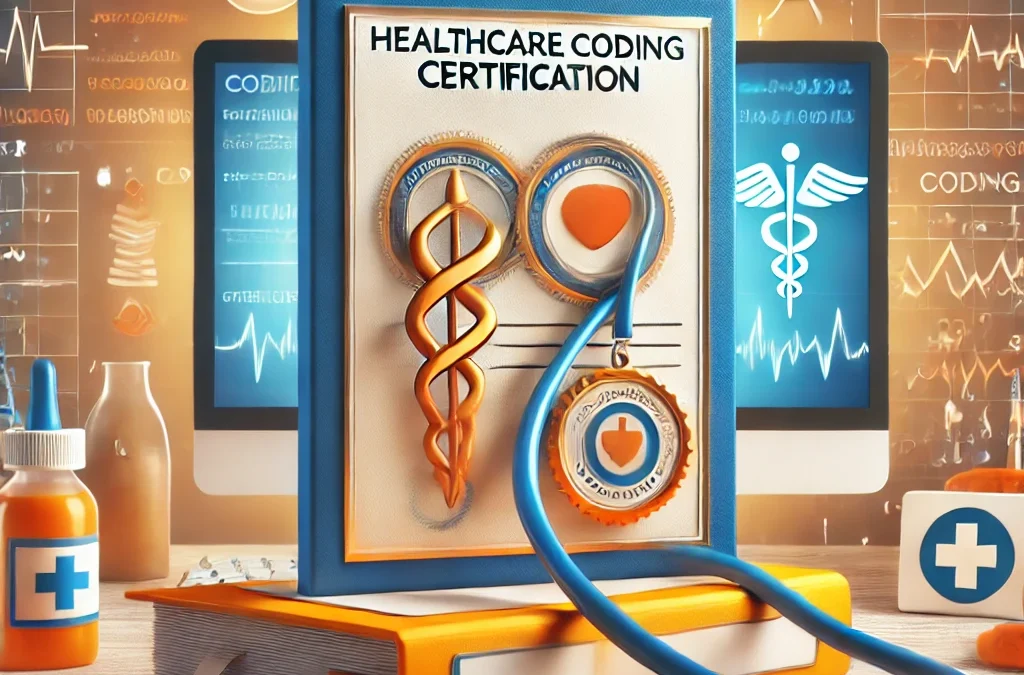Best Certifications for Healthcare Coders
If you want to kickstart or advance your career as a healthcare coder, earning a certification is essential. In this article, we’ll explore the best certifications in healthcare coding, what makes them unique, and how they can unlock better career opportunities.
Introduction to Healthcare Coding Certifications
Medical coding involves translating healthcare procedures and diagnoses into standardized codes for billing and record-keeping. As healthcare becomes more data-driven, certified coders are in high demand to ensure accuracy and compliance with coding standards.
Why Certifications Matter in Healthcare Coding
Certifications validate your knowledge and skills, giving employers confidence in your abilities. They also make your resume stand out, increasing your chances of landing higher-paying jobs and promotions.
Top Healthcare Coding Certifications to Consider
CPC (Certified Professional Coder)
Offered by AAPC, CPC is one of the most recognized certifications in medical coding, focusing on outpatient services.
CCA (Certified Coding Associate)
The CCA credential from AHIMA is ideal for entry-level coders and covers both inpatient and outpatient coding practices.
CCS (Certified Coding Specialist)
The CCS certification, also offered by AHIMA, is designed for coders focusing on hospital-based, inpatient coding.
Difference Between CPC, CCA, and CCS Certifications
CPC emphasizes outpatient procedures, while CCA provides a more general overview, and CCS focuses on inpatient coding in hospital settings. Each serves different career goals and expertise levels.
Choosing the Right Certification for Your Career Path
It’s important to assess your career goals and industry preferences. For hospital roles, CCS might be ideal, while CPC fits outpatient settings best. Beginners may find CCA a great starting point.
How to Prepare for Healthcare Coding Certification Exams
Preparation is key! Use study guides, practice exams, and enroll in courses to build your confidence and knowledge before the exam day.
Cost and Time Required for Certification Courses
Certification programs vary in length and cost. CPC, for instance, may take a few months to complete, while CCS could require more intensive study.
Popular Online Platforms Offering Healthcare Coding Certifications
- AAPC
- AHIMA
- Udemy
- Coursera
Virtual vs. In-Person Certification Programs
Virtual programs offer flexibility, while in-person classes provide hands-on experience. Choose based on your learning style and schedule.
Career Opportunities After Getting Certified
Certification opens doors to various healthcare roles, including outpatient coder, inpatient coder, and auditing positions.
How Certification Impacts Salary and Career Growth
Certified coders generally earn higher salaries and have better promotion prospects compared to non-certified professionals.
Maintaining and Renewing Certifications
Many certifications require continuing education credits (CEUs) for renewal, ensuring that coders stay updated with industry changes.
Tips for Success: Passing the Certification Exams on the First Attempt
Consistent study, mock exams, and time management are key to acing the certification exams on your first attempt.
Conclusion
Whether you’re just starting or looking to advance in your career, earning a healthcare coding certification can make a significant difference. Choose the certification that aligns with your goals, prepare diligently, and enjoy the career growth that follows.
FAQs
What is the easiest healthcare coding certification to obtain?
The CCA certification is often recommended for beginners due to its general nature and relatively straightforward content.
How long does it take to become a certified coder?
The time varies, but most people complete their courses within 6 to 12 months, depending on the program’s intensity.
What is the cost of healthcare coding certifications?
The cost ranges from $300 to $1,500, depending on the program and institution offering the course.
Do certifications need to be renewed?
Yes, most certifications require renewal every two years by earning continuing education units (CEUs).
Is online training as effective as in-person training?
Both methods have their advantages. Online training offers flexibility, while in-person classes provide hands-on experience.


Recent Comments